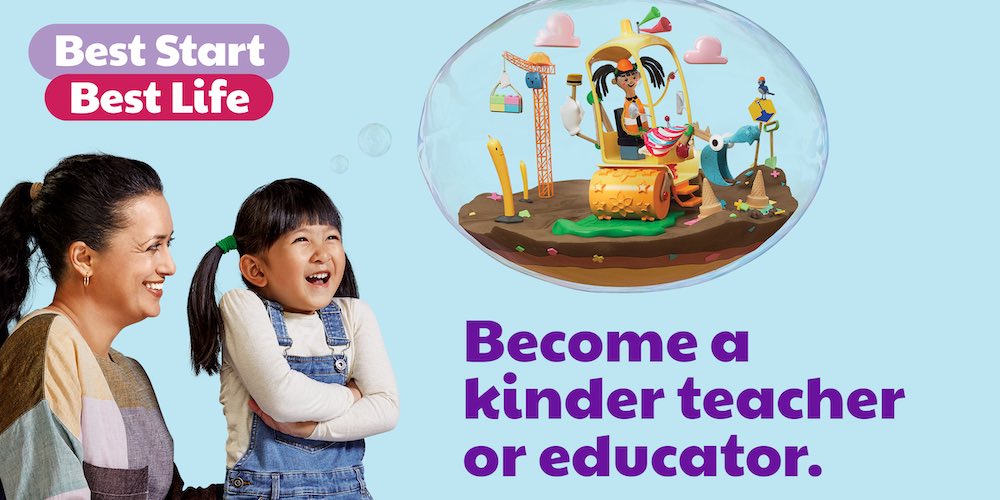As we know, different students study in different ways, and that’s totally fine. This article isn’t prescriptive - we’re not telling you what must be done - but we hope these suggestions will help with your study strategy. They’re based on years of experience with high school subjects and students.
We’re keen to hear what you think, too - leave a comment on this article to let us know!
✅ DO: Ask questions
Asking questions in class can be scary - we get it. There’s a lot of pressure floating around in high school, and putting up your hand to say that you don’t understand something takes courage. But it gets easier and easier, and is so beneficial in the long-term.
Check out this article for why question-asking is so important, and how you can get started.
❌ DON’T: Expect change for no reason
It’s natural to be disappointed if you don’t do as well on a test as hoped or expected, but what comes next is really important. On the one hand, you could do nothing, and just hope for a better result next time. On the other hand, you could actually try to diagnose what went wrong, and go about making changes to improve your results.

You don’t want to expect change after making no adjustments to the way you prepare, study, or execute in timed conditions. Being able to reflect on what you did well and what you could improve on is a great skill. Year 12 is a long year, and there’s time to make little adjustments throughout to maximise your results (and confidence!).
✅ DO: Take responsibility for your learning
We get it - there are sometimes factors at play that make studying less than ideal. Perhaps you don’t like the subject, or you don’t get on with your teacher, or your class is distracting, or whatever else. But at the end of the day, it’s on you to do what you can to get the most out of your education.
If you feel like you need extra help, seek it. If you don’t like your textbook, find other free resources online for a different perspective. It’s up to you, and developing this independence will put you in a much better position for uni (check out Uni Notes for uni study resources), TAFE, work, or just general life.
❌ DON’T: Neglect everything else
Even if you want top grades, focusing exclusively on study to the detriment of everything else isn’t a balanced or healthy approach. Try to keep a nice balance - you’ll be better for it in the long-term!

✅ DO: Use a variety of resources
Relying solely on one resource per subject (e.g., one single textbook) is a risky business. If you don’t consult several resources, you run the risk of misinterpreting how information is explained. If you diversify where you’re finding your information, on the other hand, you’re more likely to have a rounded understanding of concepts.
Sometimes, you just need something explained in a slightly different way for it to sink in. Resources like free notes and free videos can be useful for this to get a student or past-student perspective. If you’re looking for subject notes, practice questions, trial exams and text guides, ATAR Notes+ is a terrific option.
❌ DON’T: Put all your eggs in one basket
In Year 12, you’ll probably be studying four or more subjects at once. It’s really easy to study disproportionately for the subjects you find most interesting or easiest, but if you’re looking for consistent results, it can be detrimental to spend too long on one subject. You might find these quick articles helpful (these ones are VCE-specific, but the general advice holds more generally):
✅ DO: Be willing to mix it up
There are so many potential study methods (here are just some!). If what you’re doing isn’t working, it’s great to be able to try something else. Change your study location, or study environment, or study resources, or study technique, and then reassess to see if any improvements were made.

Perhaps you don’t want to completely revamp your study habits three days before your final exams, but early in the year (and prior to Year 12) presents many opportunities to try out new techniques.
❌ DON’T: Leave it all to the last minute
It’s oh-so-tempting to put things in the “I’ll do that later” basket throughout the year, but if you do this too much, you’re leaving yourself with heaps to do in the weeks immediately prior to exams.
Take your study notes, for instance. If you think during the year “I’ll organise these and make them neater later”, when are you actually going to do that? If you’re rewriting your notes in the exam preparation period, you’re giving yourself less time for things like practice exams and developing exam-specific skills.
✅ DO: Aim for consistency
The natural solution for the issue above is to aim for consistency throughout the year. If you do a little bit here, a little bit there, you might be surprised by how much you get done.
March study and April study and May study - it all adds up. It all counts, and you’ll benefit from work early in the year later down the line.
❌ DON’T: Take feedback personally
If you don’t do as well as expected on a test, it’s pretty easy to take feedback personally - but that’s not a super productive approach at the end of the day. Instead, try to work with your teacher (not against them - you’re on the same team, after all) to work out why you lost the marks you did.
This article is centred on HSC English, but contains some great advice on making the most out of assessment feedback.
Everybody works in different ways, but we hope some of the tips in this article help with your study!








Comments
No comments yet…